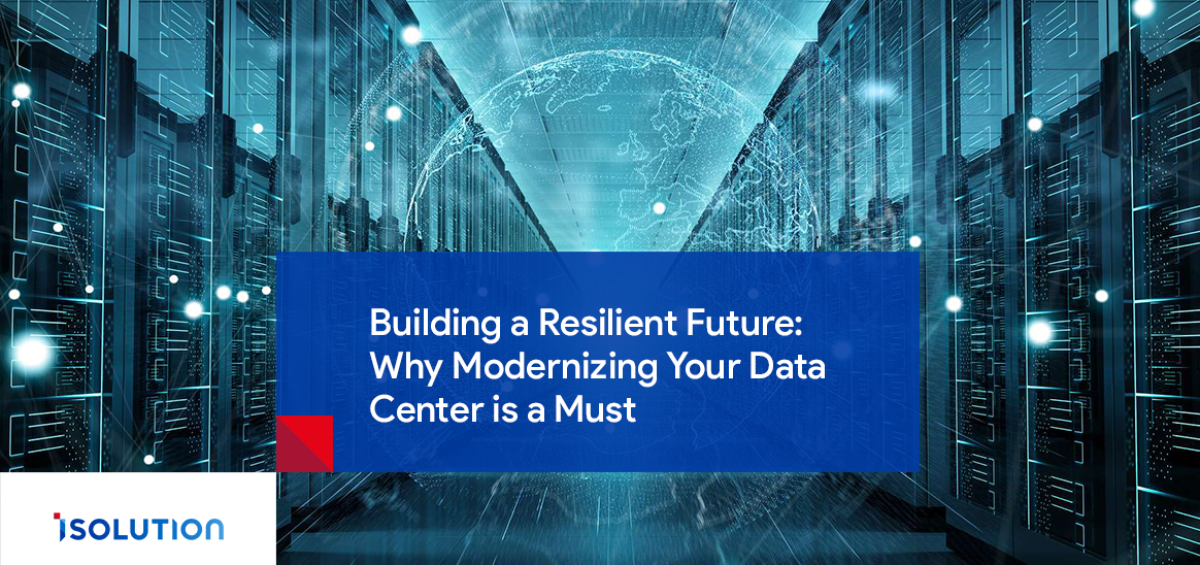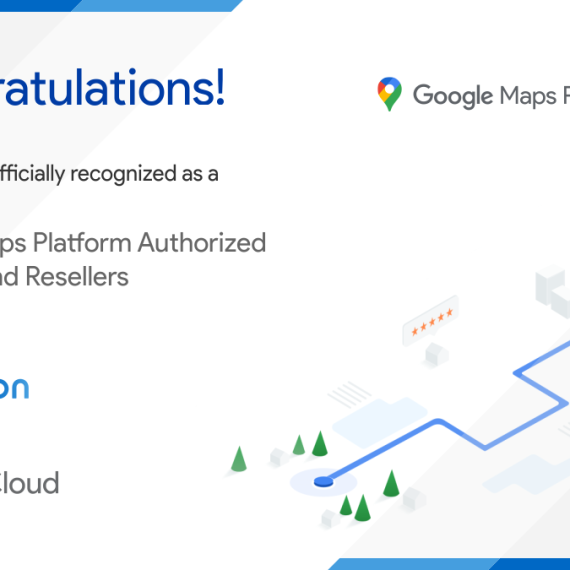In this data-driven world, the volume of data generated continues to skyrocket, reaching a staggering 79 zettabytes by 2025, according to IDC. This explosion of data presents businesses with new challenges in managing, securing, and utilizing their information effectively. A cornerstone of this digital transformation is the data center. However, outdated infrastructure can hinder performance, increase costs, and compromise security. Modernizing your data center is no longer an option; it’s a necessity to stay competitive and thrive in this digital age.
In this article, we’ll explore a comprehensive vision of modernizing your data center. We’ll also explore why this transformation is crucial for building a resilient future and uncover its substantial benefits.
What Is Data Modernization?
Data modernization is the strategic process of updating an organization’s data infrastructure, tools, and practices. This usually involves migrating from outdated legacy systems to modern, cloud-based platforms. The goal is to eliminate data silos, enhance data quality, and improve governance, ultimately transforming raw data into actionable insights that empower more innovative, faster decision-making.
Why Is Data Modernization Important?
Legacy data centers face many barriers to handle the growing demands of today’s data-heavy operations. Without modernization, organizations may face slower response times, security vulnerabilities, and challenges meeting regulatory requirements. Data modernization provides the agility needed to stay competitive by enabling real-time decision-making, improving scalability, and ensuring your infrastructure can handle future growth.
Components of Data Modernization
-
Data Integration
Data integration consolidates various data sources, such as CRM, ERP, and supply chains, into a unified platform, enabling better access and analysis. This ensures that data across the organization is accurate, up-to-date, and easily accessible.
-
Data Quality
High-quality data is essential for accurate analytics. Modern platforms enforce data validation and cleansing protocols to eliminate errors and inconsistencies, ensuring that the insights you draw from your data are reliable.
-
Cloud Computing
Cloud computing offers scalable and flexible solutions for data storage and processing. It reduces reliance on physical infrastructure while providing advanced tools for data analytics and improved disaster recovery capabilities.
-
Business Intelligence and Data Visualization
Modern data centers provide business intelligence tools that transform raw data into interactive visualizations. These tools help even non-technical teams understand complex data and make informed decisions.
Steps to Successfully Modernize Your Data Center
Successfully modernizing your data center requires a structured approach. Here’s how to get started:
-
Conduct an Initial Assessment:
Before you begin, evaluate your current infrastructure to identify inefficiencies and outdated systems. This helps in creating a clear picture of where improvements are needed.
-
Build a Modernization Roadmap:
A clear roadmap with defined milestones ensures you stay on track. Focus on areas with immediate impact, like improving security or operational efficiency.
-
Choose the Right Technology Vendors:
Partnering with experienced vendors is crucial. Select vendors who specialize in data center transformation and can provide tailored solutions.
-
Prioritize Security and Compliance:
As you upgrade, ensure your new infrastructure adheres to data security regulations like GDPR or CCPA. Modern data centers provide the latest security features, including encryption and automated compliance tools.
-
Train Your Team:
Make sure your team is up-to-date on the latest tools and processes introduced during the modernization. This helps ensure smooth operations post-migration.
Benefits of Data Modernization
-
Enhanced Regulatory Compliance
Compliance with data privacy laws such as GDPR and CCPA is crucial. Modern data platforms streamline compliance by automating data governance and ensuring only authorized personnel can access sensitive information.
-
Increased Agility and Scalability
Modern data centers, particularly cloud-based solutions, allow organizations to scale their data infrastructure as their needs grow. This eliminates the need for costly investments in physical hardware and allows businesses to adapt quickly to market changes.
-
Improved Data Accessibility
Breaking down data silos improves collaboration across departments. Modern platforms make data easily accessible, empowering employees to make faster, data-driven decisions. Centralized data repositories enable real-time access to crucial information, boosting efficiency.
-
Better Customer Experience
Understanding customer behavior is critical to providing personalized services. Modern data centers allow businesses to analyze customer preferences and create targeted marketing strategies. This personalization improves customer satisfaction and loyalty.
-
Enhanced Operational Efficiency
Automation in modern data centers eliminates manual tasks, freeing up resources for more strategic initiatives. Data-driven insights streamline workflows and enable more proactive decision-making, improving overall productivity.
-
More robust Business Continuity and Disaster Recovery
Modern data platforms provide advanced disaster recovery features. Automated backups, real-time replication, and failover systems ensure minimal downtime and fast data recovery in the event of a disruption.
-
Improved Cost-Efficiency
Cloud-based solutions significantly reduce the cost of maintaining physical servers. Pay-as-you-go models ensure that businesses only pay for the resources they use, optimizing IT budgets and reducing overhead costs.
Sustainability: The Green Data Center Movement
The push for sustainability has reached the data center industry. As technology advances and the demand for data processing increases, data centers are becoming increasingly crucial to our digital world. However, their energy consumption and environmental impact have raised significant concerns. Modernizing data centers through innovative technologies and practices can significantly contribute to sustainability goals.
Building a Resilient Future Through Modernization
Modernizing your data center is not just about keeping up with technology; it’s about building resilience. Resilience means being able to respond to challenges such as cyberattacks, hardware failures, or even natural disasters without losing operational capacity. A modern data center can quickly adapt to disruptions, ensuring business continuity in the face of adversity.
In general, Data center modernization is no longer a luxury; it’s a necessity for any business looking to build a resilient, future-ready infrastructure. By upgrading your data center, you ensure that your organization is well-equipped to handle the demands of the digital age, from enhanced security and performance to sustainability and scalability.







Leave a Comment